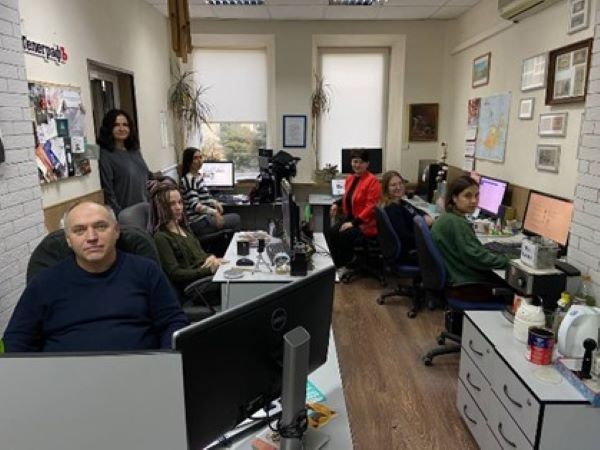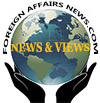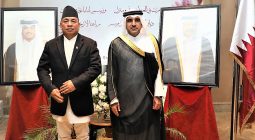On the second anniversary of the Russian-Ukrainian war, Lucinda Jordaan talks to Ukrainian editor Lesia Lazorenko of Prywatna Gazeta about the complexities of wartime coverage – and the increasing demand for investigative journalism and the challenges of surviving, and sustaining momentum over the past two years.
Lesia Lazorenko, CEO and chief editor of Prywatna Gazeta in Kremenchuk, Poltava region in Central Ukraine, oversees two titles: Kremenchutskyi Telehraf – which was, until last week, both print and digital – and ‘Simejna Hazeta’ (Family Newspaper), a print-only publication. Kremenchutskyi Telehraf, a free publication, published its last print title earlier this month, and is now again only digital.
What are the greatest challenges facing Ukrainian independent journalists now; how are they being overcome, if at all – and are there any success stories?
War has affected all areas of life. Working under such conditions is very exhausting. Some journalists from the editorial team left the country after the start of the full-scale invasion. Several employees went to serve in the Armed Forces. The staff has been reduced due to lack of finances, and the workload on journalists has increased significantly. Media personnel face the threat to personal safety, financial instability, chronic overtime, and psychological pressure. All of these factors together contribute to burnout.

What are your journalists’ tools in times of war? How are they sourcing and tracking info? And how independent are they allowed to be?
Our publication is almost 30 years old. Since its foundation and up to the present day, it has been and remains independent. We cannot be influenced by war or any other factor. The only regulators for our work are the current editorial policy, journalism standards, and the Journalist Code of Ethics.
Gathering and tracking information during wartime is no different from the pre-war period. Our journalists work in a way that meets the standards of the profession: balance of opinions, credibility, separating facts from comments, accuracy, completeness, and timeliness of information.
As in peacetime, it is always useful to combine information obtained from personal or open sources and verify the facts. Reading and analysing documents, records, constantly monitoring the information space and social networks. Working with databases and artificial intelligence. Journalists pay special attention to fact-checking.
Before publication, the material undergoes verification by an editorial staff member responsible for this area. Planning, discussions, defining relevant topics, developing a content plan strategy, all of this helps in work both in peacetime and during wartime
The only thing that forces us to delay publication or decide on the inappropriateness of posting materials is the safety of civilians and military personnel. The editorial office operates under self-regulation laws regarding the publication of such materials.
The most difficult part is to select and filter out truly important information from all that is in the journalists’ field of view. The issue of information retrieval is not trivial; there is too much of it.
What measures do your editors and publishers have in place for journalists’ safety?

The editorial office provides protection, teamwork, access to databases, digital security, and funding for its employees. But most importantly, every journalist should have the ability to disconnect from the news, know how to pause work, and spend their resources on self-care. As the CEO, I conduct one-on-one meetings with employees to determine the level of burnout.
Psychological and security training sessions for journalists organised by the Association of Independent Regional Press Publishers of Ukraine (AIRPPU) proved to be quite a successful initiative. Media professionals were taught how to provide first aid, learned about the rules of working in conflict zones, were informed about captivity protocols, and where journalists can receive psychological assistance and support.
Currently, it is crucial in our work to have action plans for various scenarios. It is even better to have several plans. This has become a key aspect in the work of editors and CEOs. The main priority is to save lives.
Are journalists taking safety and psychological training seriously?
At first, many journalists were just winging it in terms of safety and first aid, but they learnt from experience: One-and-a-half years ago, Russian forces attacked one of the biggest shopping malls in Ukraine, and many civilians died.
From that experience, all of our journalists understood how important it is to be able to help those who need it.
They often participate in psychological and medical security training, and they also share their training experiences with each other, and practice on each other, how to apply tourniquets, for example. This brings them closer, too; they feel that they can support each other if needed.
What collaborations do you have with other journalists, organisations or media partners? How does this help?
Before the war, we felt that other newsrooms were our competitors – but now, we feel that we are all colleagues because we are all working for the one goal, for victory. When fact-checking disinformation or fake news from Russia, we always share the result with all of our colleagues because actually, we do not have the same audience – and we need to spread the truth to as many people, as many readers, as we can. So yes, we share that; we collaborate with our colleagues to come up to speed.
War impacts every aspect of society – is there a determined effort to also tell non-war stories – or stories of hope?

At the beginning of the war, 80% of our content consisted of news and reports about the war. War is not just about losses, victories, and difficulties. Russia is trying to destroy our cultural heritage, history, language, traditions, museums, and cultural monuments. We write about this to raise awareness among the locals and to publicise such crimes.
Analysing audience requests, we have concluded that politics, the social sphere, and business have only recently taken a back seat since the beginning of the war. Over time, this trend has changed. People want to be informed and adapted to the conditions in which they live and work. Lifestyle coverage is also necessary. Materials about the opening of leisure facilities, announcements of cultural events, and interesting interviews help alleviate constant anxiety and tension.
People are psychologically exhausted.
We understand well that our audience will not be able to read news about the war and events on the front throughout the entire war. Balance is crucial in everything. We are writing the history of the war through stories about the war from people. In this way, we try to strengthen the hope of our readers for our victory.”
With courtesy credit:








